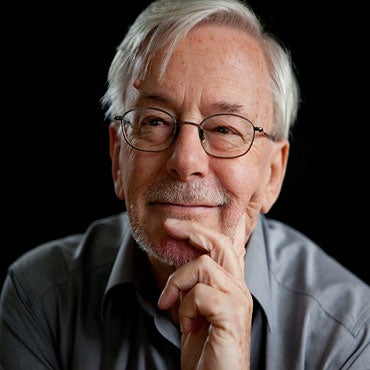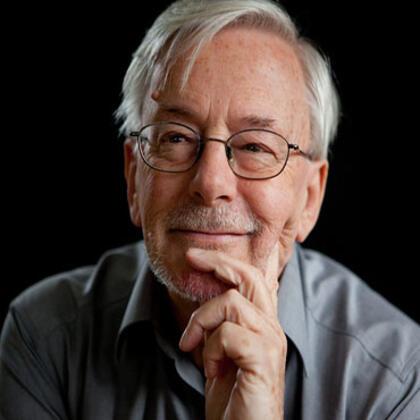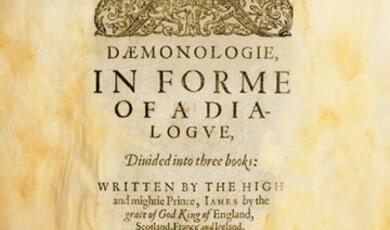The Triumph of Christendom
Share
- Details
- Text
- Audio
- Downloads
- Extra Reading
Is the medieval church a child of the Roman Empire? Why did sin and atonement come to play so large a part in medieval theology? How did secular power change the church?
Download Text
Professor Keith Ward
In this talk I shall look at the development of Christian doctrine from around the 12th to the 14th centuries, in the Catholic Church. I shall show that there is a real and profound change from the Greek theology of the first ecumenical councils, and an even greater change from New Testament Christianity. My aim is not to condemn such change, but to stress the necessity for it, and also for its continuance in the modern world.
The greatest theological difference between the Greek and Latin churches is the increasing importance in the Roman church of ideas of original sin, atonement and the penitential system, and the development of a very exclusive doctrine of salvation through the Catholic Church alone. None of these things are accepted by the Orthodox Churches, and so they represent new and typically Western religious movements.
The doctrine of original sin and original guilt was stated by Augustine, and was gradually elaborated in detail in the Latin church, until it received definitive formulation at the council of Trent, in the sixteenth century. It involves a literal interpretation of the fall of Adam and Eve from a state of original innocence, and a Platonic thesis that somehow all of humanity (human nature itself) is involved in the guilt of Adam’s sin. This guilt, for Augustine, is transmitted by the procreative act, and it involves both the loss of sanctifying grace and the punishment of suffering and death. In fact every newborn infant is fated for eternal damnation by reason of its guilt ‘in Adam’, even before it has actually done anything.
The doctrine is incompatible with the now generally accepted view of evolution and genetics, that acquired characteristics (like committing some sin and suffering some defect of will as a result) cannot be inherited (cannot be passed on genetically or by natural procreation to offspring). It is also not now generally thought by anyone who accepts the findings of modern science that there was ever a historical state of innocence, or a literal Adam and Eve. So the doctrine has to be revised in some way, if it is to be compatible with modern scientific thought – though of course such problems had not occurred in the medieval church.
The idea that people are guilty before they have actually done anything is hard to maintain for any philosophical system that is non-Platonic, that does not regard ‘humanity’, with the property of guilt, as prior to the existence of free individual human beings. The fact that the notion of the solidarity of the human race in original guilt is based on such a Platonic premise makes it unlikely that it was a New Testament view, or Paul’s view. A more plausible reading of Paul is that he saw the consequences of Adam’s sin as being those of suffering, death and estrangement from God for all his descendents. That is a fairly typical Jewish view. Paul had no recorded view that sin was transmitted by procreation, or that it involves the guilt, and therefore the death and irretrievable damnation of all who are not baptised. Such a belief is very difficult to reconcile with any plausible belief that God is revealed in Jesus to be a God of supreme love. It is therefore both factually and morally questionable.
The doctrine of original sin will have to be re-thought in the light of modern knowledge of genetics, of the evolutionary development of humans from earlier species that suffered and died long before any human committed any sin, and of a general rejection of Platonic thought.
We could still speak of an estrangement of the world from God that is a consequence of the willed acts of our ancestors, and that needs to be countered by divine grace if humans are to attain their destiny of sharing in the divine life. But the doctrine – the developed doctrine of solidarity in sinning, not just in the consequences of sin, of transmission by procreation, and of the penalty of eternal retribution - was itself a re-thinking and development of a Pauline insight that human beings are alienated from God and unable to love fully and truly, even though they remain morally free and under obligation. The medieval re-thinking seems to me a particularly unfortunate one, and to be a definite regression from earlier non-Augustinian views that, though the wages of sin is death, God offers life to all who will freely accept it. To put it bluntly, unbaptised babies are not, as Dante supposed, deprived of the vision of God forever. The divine will for all of us, without exception, remains that we should become sharers in the divine life (1 Peter 1, 4), and a loving God will deprive none of that possibility.
2. In any case the idea that the punishment for sin will be everlasting torture is highly questionable, and totally unacceptable to anyone who believes that God is just, merciful and loving. The doctrine of eternal Hell seems to be a construction of the church, even though quite an early one. Any reasonably critical view of the New Testament would see the parables of Jesus – which speak of wheat and tares, throwing tares on a fiery rubbish heap, or consignment to ‘outer darkness’ – as vivid and picturesque warnings of the ultimate self-destructiveness of rejecting love, rather than as literal predictions of hard times to come for almost everybody.
The Bible does speak of divine judgment, and of a division between the just and the unjust. It warns that injustice will bring sorrow, torment, death, and ultimate estrangement from the divine life. It also speaks of an alienation of the human world from God. Paul, especially, writes that ‘the scripture has imprisoned all things under the power of sin’ (Galatians 3, 22). Humans are born into a society estranged from God, under the power of greed, hatred and ignorance.
But Paul also writes, ‘God has imprisoned all in disobedience, so that he may be merciful to all’ (Romans 11, 32). All are called to repentance, and God’s mercy is extended to all without exception. It is God’s will and desire that all should turn from injustice, and receive the mercy that is offered supremely and definitively in Christ. God wills the salvation of every human being (2 Peter 3, 9). Presumably if God wills this, God must make it possible. It follows (since most humans who have existed on earth have not heard of Jesus) that salvation cannot depend on explicit confession of belief in Jesus, made during this life. God’s grace is given through Jesus, but it is not limited to those who have heard of Jesus (think of how human life depends on oxygen, even for people who have never heard of oxygen).
Salvation is a possibility for all people. It is what God wills, and the idea of Hell stands as a warning of the consequences of rejecting God, not as a prediction of what will happen to the majority of the human race. The New Testament hope is that all will heed the warning. God will certainly help them in every possible way to do so. And it seems reasonable to hope that God’s power and patience will be sufficient to bring about what God wills, however long it takes.
The paintings of the terrors of Hell on the walls of medieval churches are much more interesting than the paintings of rather static groups of singing angels in heaven. But the doctrine of eternal Hell is a church invention that can only exist when metaphors of great spiritual depth are turned into literal descriptions of unbearable sadism. This is a piece of Christian re-thinking that we can do without, and that flatly contradicts the gospel of the limitless love of God.
3. Along with developments in the doctrine of original sin, the medieval Latin church developed a new doctrine of atonement, God’s way of liberating humans from sin and its consequences. Though this new doctrine was never officially defined by the church, it became a widely accepted belief, the main outlines of which were later accepted by the Protestant Reformers.
The new doctrine was classically framed by the eleventh century theologian Anselm of Canterbury, in his book, Cur Deus Homo? He rejected the previously widely accepted view of Gregory of Nyssa that Jesus’ death was a ransom paid to the Devil to buy freedom for human beings. Gregory’s theory was based on Mark 10, 45 – ‘the son of man came not to be served but to serve, and to give his life a ransom for many’. A simple interpretation of this statement is that Jesus was paying a heavy price by sharing in the suffering of humanity, so that humans might be united to God through him. But Gregory literalised the metaphor, and asked to whom the price was paid, and how much it was. Having asked a silly question, he gave a silly answer – the price was the death of Jesus, and it was to be paid to the devil.
Anselm’s objection to this was twofold – that the Devil had no rights over God, and that it would be a deception for God to give his Son as a ransom, when in fact the resurrection would deprive the Devil of his alleged payment in any case.
In its place Anselm proposed a ‘satisfaction’ or ‘substitutionary’ theory of atonement. Because of our sin, we owe God a debt of honour that we can never repay. Jesus, being sinless, is free of such a debt. Being perfectly divine, his death has infinite merit, and so can be used to pay all our debts of honour to God. God became human, Anselm argues, precisely so that he could, as man, honour God truly on our behalf, and God’s demand for justice would be satisfied. Jesus’ perfect obedience substitutes for our imperfect obedience, and is a gift of infinite worth to the Father that can be offered on our behalf.
Anselm’s theory has its own peculiarities. After all, the gift that the Son offers to the Father is given by God to God, and it is rather odd for God to require that he give himself a gift to satisfy his own honour. It would be simpler for God simply to forgive our sins without any gift. Thomas Aquinas later revised a basically Anselmian theory, allowing that God did not require Jesus to die before God could forgive sin. Yet such a sacrificial death was, Thomas held, an appropriate way of reconciling sinful humanity to God.
4. It may seem that such a quasi-legal transaction, of asking someone else to honour God when you cannot do it yourself, does not really help actually to liberate you from the power of sin. More ancient ideas of Christ as the great Physician, or the healer of wounded souls by his risen power, may seem to meet the human need for liberation more adequately. The cross shows the participation of God in human suffering, and it is in that sense that Christ ‘dies for (i.e. because of, and in order to liberate us from the power of) our sins’. But it is Christ’s resurrection, the divine vindication of his total obedience to his priestly vocation, which carries liberating power. That power is conveyed to us through the Spirit, so that forgiveness and sanctification (setting aside the power of sin and uniting us to the divine) are two sides of the same divine act.
This view of atonement is more like that of Peter Abelard, who is often misunderstood as saying that the atonement is nothing more than a subjective change in us. It is well attested in the New Testament, and is more characteristic of the Greek emphasis on incarnation and theosisthan of the ideas of satisfaction and substitution that came to mark the Latin tradition after the eleventh century.
Anselm’s account depends upon a strict retributivist model of divine justice. Our sin has deprived God of his due. The price of honour must be paid. Christ pays it for us, and so the demand for retribution for injustice is satisfied, albeit by someone else (Platonically, if ‘humanity’ honours God truly in Christ, then we may be regarded as ‘included’ in that satisfaction).
It was from such ideas, which Anselm was the first to set out in systematic form, that the belief arose that the church possessed an infinite treasury of merits – those obtained by Christ’s death. These merits could be accessed by believers who undertook specific penitential activities, imposed by the church, and could be used either for the benefit of themselves or for others, living or dead.
The Eucharistic covenant meal of the Lord’s body and blood became a sacrifice, or strictly speaking the making-present of the one infinitely fruitful sacrifice of the cross. Christ was the priest, and Christ was the sacrificial victim, offering the merits of his death for those who are present at Mass, or those for whom they pray. At least in popular thought, it was often believed that the more Masses you offered, or the more penances you undertook, the more merits you could accrue.
I am not speaking here of official defined dogmas, but of widespread Catholic practices in the medieval church. Nor am I primarily concerned to ask whether these practices were legitimate or not. I am mainly concerned to point out that they were new, unknown to the earlier church, and were often resolutely contested even as they arose. However new they were, for many people they now represent ‘traditional Catholic faith’. But traditions rarely go back as far as we think, and in many cases historians can date their inception with some definiteness.
6. The writing of Cur Deus Homo in 1098 is one such significant date. Another is the first written mention of the word ‘Purgatory’ in 1170, according to the French scholar Jacques LeGoff. In his book, The Birth of Purgatory (London, Scolar Press, 1984), LeGoff sets out the development of the doctrine of Purgatory from early mentions of an apparently purifying fire in Paul to the developed doctrine of the council of Trent in the sixteenth century. The developed doctrine is that those who die penitent and in faith may still have temporal punishments due because of their sins. These will be like painful fire, but they are finite in duration, and souls in Purgatory will be assured of final salvation. In addition, their pains may be relieved by the prayers of the living.
What is new about this is not that there may be a possibility of salvation after death, or that the prayers of the living may help the dead. What is new is belief in a specific state or place called Purgatory, different from Hell, Heaven and Limbo (a state without the vision of God, but otherwise pleasant, it seems). With that development goes the thought that specific periods of remission of punishment can be obtained by the church, and offered to the faithful in return for some stated act of faith and penitence.
The Greek churches have never accepted this development, which they see as based largely on visionary experiences that are fantastic and untrustworthy. Modern Catholic theologians are much more sceptical about the details of late medieval teaching on Purgatory. A concern that there should be some possibility of growth and progress after death towards the vision of God seems natural for anyone who believes that God wishes to reconcile the whole world to the divine through Christ. And a concern that our prayers for others should not be restricted to those who are presently living seems consonant with a divine will for universal salvation.
But the medieval insistence on pain and on physical fire grates on the sensibilities of those who see Christ as primarily a figure of love, healing, and renewal, not of strict retribution. Also the restriction of Purgatory to those who die in faith (even when that is widened to include a ‘baptism of desire’), and the denial of the possibility of repentance after death, may now appear to restrict the forgiving grace of God too greatly.
Many may now wish to think of a state after death in which repentance and positive learning is possible, and in which the vision of God is a hope for all who have died. Like Cardinal Bellarmine, we may pray that Hell (from which there is no liberation) is empty, and that Purgatory is full of largely surprised inhabitants. And like Gregory of Nyssa, we may pray, even if we cannot guarantee, that all may eventually follow paths that lead ever further
into the infinite life of God.
7. There is room for much re-thinking of what Christian faith implies about the destiny of individual souls after death. The medieval Latin doctrine of Purgatory seems inadequate to many largely because it is just too definite and specific about details on which we have no precise information. It developed from early sources in Christian practice and belief, but most theologians would now say that it developed too far, and in subsequent centuries it would need to be reigned in, as indeed the council of Trent itself attempted to do.
The second Vatican council introduced a number of further reforms, reducing the granting of plenary indulgences (remissions of all temporal punishments still due to forgiven sins) and refraining from specifying the precise number of days and years of punishment that can be remitted by an indulgence. Thus the ‘golden age’ of indulgences lasted from the eleventh century, from which the first certain evidence for the granting of general indulgences can be dated, until the 1960s. The modern Roman Catholic Church still claims the authority to grant indulgences, but has virtually abolished what the Protestant Reformers chiefly objected to, the sale of pardons for the dead, with an official guarantee of success.
The 1994 Catechism of the Catholic Church remarks that the ‘temporal punishments’ of Purgatory ‘must not be conceived of as a kind of vengeance inflicted by God from without, but as a following from the very nature of sin’ (1472). They have the nature of ‘an unhealthy attachment to creatures’, and an indulgence uses the holiness of Christ and the saints to ‘spur them to works of devotion, penance and charity’ (1478).
An indulgence has become, in effect, a promise of the church that the faithful dead will be helped to freedom from attachment to self by the virtues and prayers of the saints.
In this way, the doctrines of Purgatory and indulgences have been re-thought by the twentieth century Catholic Church, as have satisfaction theories of atonement. These doctrines developed from earlier, less specific and defined beliefs, over time, and their full flowering can be dated to the medieval Latin period after the eleventh century. At that time the doctrines had a specificity and detail that had earlier been lacking, and that has since been greatly qualified.
Some people would say that the church became clear about what had previously been obscure or only implicit in Christian faith. As new questions were raised, about whether we could pray for the dead, and whether the sacrifice of the Mass could be offered on their behalf, the church defined an answer that it had not been necessary to make explicit at an earlier date. A more critical account would say that a religious system in which remission of punishment for the dead could be obtained by paying money for the offering of a private Mass is dramatically different from the fourth and fifth century offering of the Eucharist as a sacrifice of thanksgiving to God for the gift of eternal life, received by those who are present. Either way, the medieval Latin church re-thought earlier Christian practices and beliefs in a remarkable way. And it did so by unpacking metaphors of judgment and redemption in specific ways, which can be shown by historical study to have changed in many respects over time.
On these matters the Greek and Roman churches have differed considerably. Perhaps the most basic difference is that for the Greeks the incarnation is itself the redemption of creation, the uniting of creation, at least a foreshadowing of that final uniting, to the divine life. But for the Romans, the Cross and the offering of the life of Jesus as a propitiation for sin is the supreme redemptive act. In both cases, redemption has to be appropriated by the individual believer, but whereas for Greeks this appropriation is primarily by participation in the risen life of Christ, for Romans it is by pleading the merits of Christ’s sacrificial death.
These accounts do not contradict one another. But they are different ways of understanding how God redeems the world in Christ. Each has developed in a distinctive way, and this suggests that the original texts of Christian faith leave much room for, and even encourage the development of, diversity of interpretation and understanding.
8. What are the implications of all this for a plausible view of Christian revelation?
I suppose it is just conceivable that Jesus could have laid down a set of specific doctrines that would have made debate over succeeding centuries unnecessary. Any problem that arose could have been resolved just by pointing to the recorded teaching of Jesus. But Christian revelation is not now, and never has been, like that. The church has continually had to make new decisions – about what should be included in the canon of Scripture, and about how Scripture should be interpreted. In the sixteenth century the council of Trent decreed that only the Roman church had the right to interpret Scripture. To say that Jesus or the apostles had themselves decreed this is absurd, given that the New Testament did not then even exist. It could be held, however, that Jesus had given supreme authority to Peter and his successors to resolve disputed questions in the church. There is no evidence that Jesus did so, yet it is possible, and such a claim could be accepted on faith.
Some questions will be new, never having been explicitly raised before. The Pope may, as the Roman church claims, be protected from error when he declares, on behalf of the whole church, that some doctrine or moral affirmation is a matter of faith. But even the Pope does not simply go to the words of Jesus or the Bible. He listens to arguments, considers diverse opinions, and comes to a decision.
When I say that the Christian faith is essentially committed to change, I do not mean Christians must be always changing their minds. I mean that new questions will continually arise that have not previously been considered, and that require, not just repetitions of previous statements, but new decisions. Even for those who grant the Pope supreme authority in doctrine and morals, we cannot just leave the consideration of such questions to him. It is important for those who are able and willing to engage in debate and discussion, so that a general opinion may be formed.
It is important to discuss how to understand the atonement, the making-one of divine and human, which is accomplished in Christ. Understandings may have to change as more general moral and social perspectives change.
Anselm found Gregory’s ransom metaphor unhelpful, in view of a more developed view of divine perfection. And many of us might find Anselm’s satisfaction metaphor unhelpful, since we no longer live in a feudal society where matters of giving due honour to one’s liege lord are of the first importance. We need continually to re-think the idea of atonement in ways that speak to our own time. And we should always bear in mind one major fact of Christian revelation - the silence of Jesus on any detailed and specific questions of this sort.
9. Buddhists speak of ‘unprofitable questions’, questions we may speculate about, but which are not conducive to our salvation. Perhaps no question is wholly unprofitable, as long as we do not think that we have the only correct answer to it, arrived at just by our own reasoning or by our own private interpretation of Scripture. We need to know the full range of what others have thought, and, when we have seen that, we will see how uncertain and tentative our own private answers must be. In short, we must rethink basic Christian questions again and again, without undue attachment to the answers we are disposed to give, and without frustration at our inability to resolve them all successfully. What matters is that we have new life, and a new awareness of God, through the Spirit of Christ. This should lead us to re-think our faith with reverence and caution, as we seek continually to expand our extremely limited understanding of the mysteries of faith.
It is surprising that so many Christians seem to think that doctrines such as a substitutionary theory of atonement, or Purgatory, or the granting of plenary indulgences by the Pope, are not new decisions at all, but ancient truths deriving from Christ himself.
Against such a view, it is important to show that the institution of these theories and practices can be dated quite specifically. Their gradual development over time can be and has been documented in detail. It is demonstrably not the case that they have been believed ‘everywhere, always, and by all’, in the supremely vacuous phrase of Vincent of Lerins (vacuous, because virtually nothing has been believed by all Christians everywhere. There is always some theologian who will disagree. Of course he or she can be called a heretic and then ignored. But that is just winning by empty definition).
Some novelties are older than others, but there is no particular virtue in preferring old novelties to new ones. The relevant question to ask is why the newer changes have been made, what historical circumstances might account for them, and whether they seem to be appropriate responses to new insights or new knowledge.
10. What is required of the church now, as was required in the very first Christian generation, is that it sponsor and encourage informed and sensitive discussion of new challenges that might make creative reformulations of older doctrines appropriate.
The medieval Catholic Church to a large extent did this, and the council of Trent, as I hope I have sufficiently shown, embodied many new creative formulations and definitions of Christian beliefs. But far greater changes were to lie ahead.
One of the greatest changes in the Roman Catholic Church – one that the Jesuit theologian Karl Rahner calls the greatest caesura in the church since the abandonment of Torah – was the full acceptance of individual freedom of thought and belief.
The church often used to be nervous of private speculation and claims to spiritual experience. It licensed the torture of heretics and called for spiritual crusades against infidels and unorthodox groups like the Albigenses. It was intolerant of Jews and Muslims, and of any deviation from the authority of the church. Even as late as 1832, in the encyclicalMirari Vos, Pope Gregory XVI denied that there should be freedom of worship or of the press. Paragraph 14 of the encyclical reads:
This shameful font of indifferentism gives rise to that absurd and erroneous proposition which claims that liberty of conscience must be maintained for everyone. It spreads ruin in sacred and civil affairs, though some repeat over and over again with the greatest impudence that some advantage accrues to religion from it. "But the death of the soul is worse than freedom of error," as Augustine was wont to say. When all restraints are removed by which men are kept on the narrow path of truth, their nature, which is already inclined to evil, propels them to ruin. Then truly "the bottomless pit" is open from which John saw smoke ascending which obscured the sun, and out of which locusts flew forth to devastate the earth. Thence comes transformation of minds, corruption of youths, contempt of sacred things and holy laws -- in other words, a pestilence more deadly to the state than any other. Experience shows, even from earliest times, that cities renowned for wealth, dominion, and glory perished as a result of this single evil, namely immoderate freedom of opinion, license of free speech, and desire for novelty.
These are strong words, but they are outdone by the syllabus of 80 errors that were condemned by Pope Pius IX in 1864. The following small selection gives the flavour of the whole. Each of these propositions was condemned as false:
15. Every man is free to embrace and profess that religion which, guided by the light of reason, he shall consider true. -- Allocution "Maxima quidem," June 9, 1862 ; Damnatio "Multiplices inter," June 10, 1851.
16. Man may, in the observance of any religion whatever, find the way of eternal salvation, and arrive at eternal salvation. -- Encyclical "Qui pluribus," Nov. 9, 1846.
17. Good hope at least is to be entertained of the eternal salvation of all those who are not at all in the true Church of Christ. -- Encyclical "Quanto conficiamur," Aug. 10, 1863, etc.
77. In the present day it is no longer expedient that the Catholic religion should be held as the only religion of the State, to the exclusion of all other forms of worship. -- Allocution "Nemo vestrum," July 26, 1855.
78. Hence it has been wisely decided by law, in some Catholic countries, that persons coming to reside therein shall enjoy the public exercise of their own peculiar worship. -- Allocution "Acerbissimum," Sept. 27, 1852.
79. Moreover, it is false that the civil liberty of every form of worship, and the full power, given to all, of overtly and publicly manifesting any opinions whatsoever and thoughts, conduce more easily to corrupt the morals and minds of the people, and to propagate the pest of indifferentism. -- Allocution "Nunquam fore," Dec. 15, 1856.
80. The Roman Pontiff can, and ought to, reconcile himself, and come to terms with progress, liberalism and modern civilization. -Allocution "Jamdudum cernimus," March 18, 1861.
11. In these documents the ancient alliance that is found in Plato between a claim to knowledge of absolute moral truth and the suppression of dissent is strongly re-affirmed. As in Plato’s Republic, there is a small number of men (and for the Catholic church it was always men, not women) who have privileged access to the truth. They are the ‘guardians’ of philosophical/religious and moral truth. It is their responsibility to ensure that people are taught the truth, which – in a strengthening of Plato’s doctrine - is essential for eternal salvation. Moreover, any opposition to the truth can be attributed to corruption and to devilish attacks on faith, so it is, and must be treated as, evil. For that reason reading and discussion must be carefully supervised, and error, being dangerous to the soul, must not be granted any rights. Permitting the freedom to err is not worth the death of a single soul, and therefore freedom of belief and worship is dangerous, not desirable, and should not be tolerated.
At this stage I simply wish to point out that this complex of attitudes is not confined to religion. It was not associated with religion in Plato, nor in other notably repressive societies like that of Russian communism or German national socialism. What it requires is a belief that truth matters desperately, that people are naturally inclined to evil, and that they need to be trained and restrained if they are to keep to ‘the narrow path of truth’. So you could believe, for example, that social equality is an absolute moral imperative, that people are naturally inclined to inequality, that this is an evil impulse, and so people need to be forced to be equal by whatever social sanctions are necessary. That is what happened in Stalin’s Russia. Something not wholly unlike it happened in the European Catholic Church. For Gregory XVI and Pius IX, the way to eternal salvation is narrow and known by few, and people need to be protected from their own corrupted impulses, by persuasion, restraint, and – if necessary – compulsion.
But it should be noted that all these papal pronouncements have been rescinded by the Second Vatican Council. That council’s Declaration on Religious Liberty states: ‘The Vatican Council declares that the human person has a right to religious freedom’ (Vatican Council II, ed. Austin Flannery, Dominican Publications, 1992, p.800). Gaudium et Spes declares that ‘the Holy Spirit offers to all the possibility of being made partners, in a way known to God, in the paschal mystery’ (p. 924). This is explicitly said to be true ‘not for Christians only but also for all men of good will in whose hearts grace is active invisibly’. Lumen Gentium states that ‘those who, through no fault of their own, do not know the Gospel of Christ or his Church, but who nevertheless seek God with a sincere heart, and, moved by grace, try in their actions to do his will as they know it through the dictates of their conscience – those too may achieve eternal salvation’ (p. 367).
The Roman Catholic faith is still said to be the one true faith, to which all must adhere if they conscientiously see it to be so. But conscientious disagreement is permitted (it is presumably not the unbelievers’ fault that they honestly disagree). And it is asserted that what is most important for salvation is ‘good will’, or following conscience with a sincere heart. In such cases, it is affirmed, grace may be active invisibly for salvation. It is not any longer necessary for all to submit to the Roman Pontiff in order to be saved. This constitutes a major change in thinking from that of the fourteenth and nineteenth century Popes, which was itself a major development from the rather modest and disputed papal claims of the first Christian centuries.
The history of the Roman Catholic Church illustrates very well the way in which basic Christian doctrines need to be re-thought in new historical contexts. For Roman Catholics, the Pope and the magisterium of the church provide guidance and encouragement for such re-thinking. And, as I have shown, they often take the lead in engaging in it – even if they sometimes deny that they are changing anything.
For some Christians, however, that lead has too often issued in repressive, harmful or unjustifiable decrees and definitions to be entirely trustworthy. In the sixteenth century, the Church was to split yet again, and large numbers of believers were to reject the teaching authority of the Pope. Protestant Christianity was born.
© Professor Keith Ward, Gresham College, 15 December 2005
This event was on Thu, 15 Dec 2005
Support Gresham
Gresham College has offered an outstanding education to the public free of charge for over 400 years. Today, Gresham College plays an important role in fostering a love of learning and a greater understanding of ourselves and the world around us. Your donation will help to widen our reach and to broaden our audience, allowing more people to benefit from a high-quality education from some of the brightest minds.


 Login
Login







